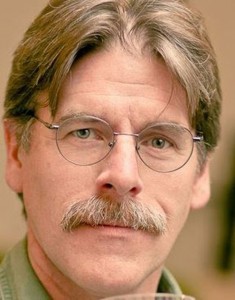Mark Darling’s work responsibilities are no longer limited to Ithaca College. City of Ithaca Mayor Svante Myrick tapped Darling, the college’s sustainability coordinator, as one of two new commissioners on the city’s Board of Public Worksearlier this month. The board, composed of six people appointed by the mayor and approved by the Common Council, is a government agency responsible for much of the city’s infrastructure, such as sewers, roads, parks, cemeteries and much more.

Staff writer TinaMarie Craven spoke with Darling about his expectations for the new gig and how he will balance it with his job at the college.
TinaMarie Craven: What are your responsibilities as one of the commissioners?
Mark Darling: Well, I’m part of a committee, and we are overseeing Public Works — kind of an archaic set up. Not too many cities have these.
TC: What exactly does that entail?
MD: Going to meetings and listening to people complain about not wanting to pay to have sidewalks fixed and other things like that, and just overseeing a bureaucracy. [This week], we’re talking about a machine that tests valves for the sewer water system. We separate and have people talk about all sorts of different ideas having to do with streets, water and other parts of public works.
TC: Is this something you’ve always wanted to do?
MD: No, actually, I was approached and asked to do it. I wanted to do some service for the city. I was thinking more of Parks Commissioner or the Conservation Board, but I was asked to sit on this committee, which handles a high volume of business, so I said, “Sure, why not?”
TC: Why do you think the mayor selected you for this position?
MD: Partly because I’m a registered Independent, and I held a lot of experience here at the college with facilities, so I’m used to things like budgets, boards, street repairs, costs and the like.
TC: What are your expectations for your new job?
MD: Well, I’m still learning it, so I don’t quite know what to expect, so I’m learning what the expectations are, but there is some hope in the new discussions about revising the charter that perhaps the Board of Public Works might change. I would be interested in how that might happen.
TC: How do you intend to balance both of your positions?
MD: A lot of the same approaches to sustainability are going to work in the Board of Public Works — trying to do the balance of the triple bottom line, particularly when 40 percent of the budget is jobs. So balancing jobs against what’s going to be environmental protection and what the city needs to grow and develop, to have a viable economy.
TC: Is there anything you’re looking forward to as part of your new position?
MD: Streamlining some of these processes and helping with getting communication clearer on a few things — helping with transparency and city government.








